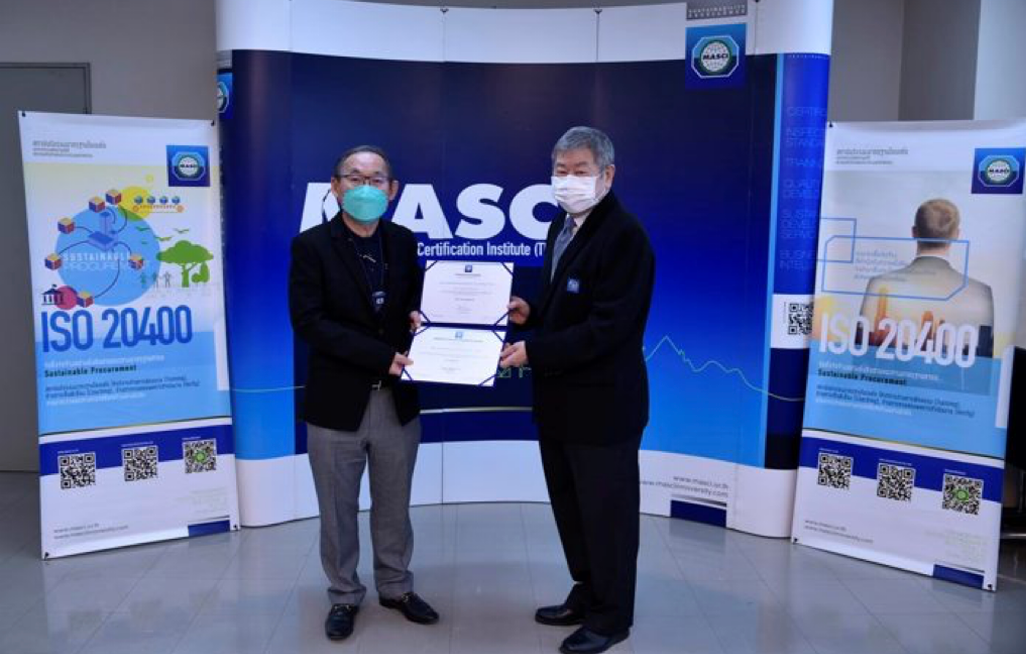| SUSTAINABILITY |
| Supply Chain Policies & Strategies |
| ESG Policies & Guidelines | Supplier Code of Practice | Environmental Guideline | GMO Guideline | Sustainable Agriculture Guideline | Packaging Guideline | Relevant Key Sustainability Issues |
| Direct Material | ||||||
| Packaging |
|
|||||
| Commodity |
|
|||||
| Chemical |
|
|||||
| Indirect Material | ||||||
| Machinery & Spare Parts |
|
|||||
| Construction |
|
|||||
| Marketing Materials |
|
|||||
| Material Handling |
|
|||||
| Consumables |
|
|||||
| IT & OA Equipment |
|
|||||
| Services |
|
|||||


| Target achieved | In procress |
| Sustainability Commitments | 2019 | 2020 | 2021 | Target | Target Year |
Compliant Supplier
Number of active suppliers complying with ThaiBev Supplier Code of Practice |
85% | 100% | 100% | 100% | 2020 |
Local Procurement
Number of suppliers whom ThaiBev procures goods and services from operating in Thailand |
98% | 97% | 97% | 95% | 2021 |
ESG Risk Assessment
Number of active suppliers undergo sustainability risk assessment |
100% | 100% | 100% | 100% | 2021 |
Critical Supplier Audited
Number of critical tier 1 and non-tier 1 suppliers being assessed on site by third-party or ThaiBev auditors |
100% | 100% | 100% | 100% | 2021 |
Responsible Sourcing
Volume of key agricultural raw materials responsibly sourced i.e. malt and hops, sugar, broken rice, tea leaves, and palm oil. |
64% | 100% | 100% | 100% | 2025 |
Third-party Risk Assessment
Number of active suppliers being assessed and examined on sustainability risks by a third party or using third-party risk database |
100% | 100% | 100% | 100% | 2025 |
Strategic Suppliers Having Supplier Code of Conduct Implemented
Number of strategic suppliers having their own supplier code of conduct implemented to their tier 1 suppliers (ThaiBev’s non-tier 1 suppliers) |
47% | 47% | 56% | 100% | 2030 |





 SYNERGY |
 INTEGRATED RISK MANAGEMENT |
 VISIBILITY |
 INTEGRATED RISK MANAGEMENT |
 CENTRALIZED MANAGEMENT |
 VISIBILITY |
 INTEGRATED RISK MANAGEMENT |
 STANDARDIZATION |
 SYNERGY |
 INTEGRATED RISK MANAGEMENT |